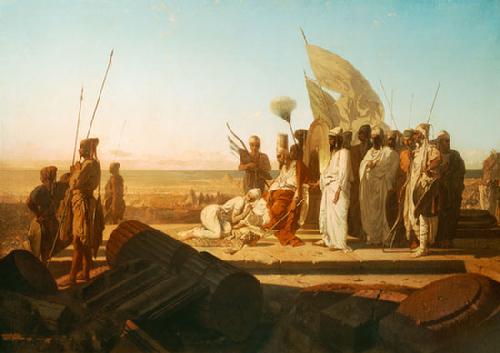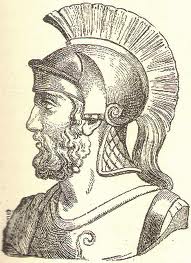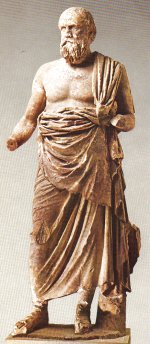Click here for direct link to audio podcast Episode #43. 
Click here for link to previous audio episodes.
For the very best, there is no need to search further than a well-worn copy of Herodotus’ The Histories. As a boy in Halicarnassus, Herodotus grew up listening to tales told by men who had fought at Salamis against the Greeks—and under the command of Queen Artemisia I. This warrior queen of Caria acted as a satrap of Persian king Xerxes and her advice on matters were held in high regard. She strongly advised against engaging the Greeks in naval warfare.  Herodotus details her arguments in Book Eight, but Xerxes had his own reasons for continuing a naval advance. Artemisia led ships in the battle at Salamis and sunk a Greek ship when she ordered it rammed. 10,000 drachmae was promised to anyone who captured her alive. She escaped after the battle and continued her close relation to the Persian king by taking his children to Ephesus under her protection.
Herodotus details her arguments in Book Eight, but Xerxes had his own reasons for continuing a naval advance. Artemisia led ships in the battle at Salamis and sunk a Greek ship when she ordered it rammed. 10,000 drachmae was promised to anyone who captured her alive. She escaped after the battle and continued her close relation to the Persian king by taking his children to Ephesus under her protection.
Lucky for us, Xerxes decided to follow his own mind and the Persian fleet was destroyed. Never again would the Greeks take a defensive stand against the Great King on their own home turf. The ideals of democracy and the arts that are its bounty were given a new lease on life in the victory at Salamis.
How fair of Herodotus to tell us about her: “It seems to me a most strange and interesting thing that she—a woman—should have taken part in the campaign against Greece. On the death of her husband the sovereign power had passed into her hands, and she sailed with the fleet in spite of the fact that she had a grown-up son and that there was consequently no necessity for her to do so. Her own spirit of adventure and manly courage were her only incentives…She sailed in command of the men of Halicarnassus, Cos, Nisyra, and Calydna, and furnished five ships of war. They were the most famous in the fleet, after the contingent from Sidon, and not one of the confederate commanders gave Xerxes sounder advice than she did.”
And how shocking that she isn’t even mentioned in the 1904 high school history text that I read from in today’s podcast! Amazing how stories of strong female leaders tend to be omitted from the history books.





